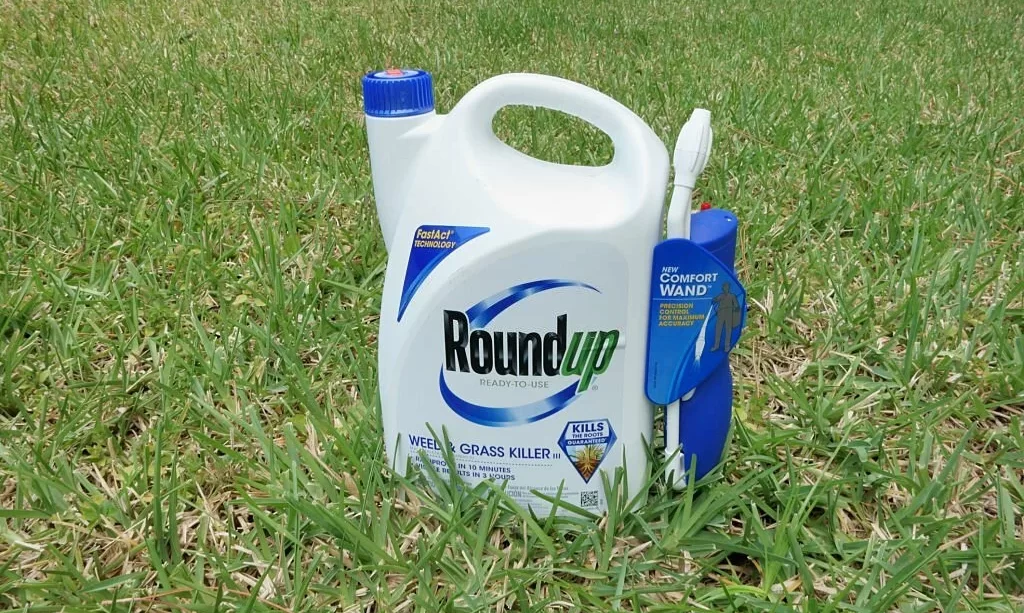Roundup, a widely recognized name in the gardening world, has become a trusted companion for many gardeners and homeowners battling weeds. Its effectiveness in weed control has made it a go-to solution for maintaining lush, weed-free landscapes. However, in your pursuit of a beautiful garden, you may wonder whether Roundup, like all things, has a shelf life. This article will delve into the intriguing question of Roundup’s expiration and what you need to know to keep your garden thriving.
- Round Up Pro is used in many situations from agricultural farming to industrial vegetation management; It can also be used around residential homes and commercial businesses to control unwanted weeds; Roundup Pro is also used by many highway right of way (ROW) management companies, cities, counties, and municipal governments
- Easy to use
- Non-Selective Herbicide
- Rainfast in just one hour
Does Roundup Expire?
The simple answer is yes, Roundup can expire. While it doesn’t have a limited shelf life in the traditional sense, it’s important to understand that the effectiveness of this herbicide can diminish over time. Like many products, Roundup is not immune to the passage of time, environmental factors, and formulation specifics that can influence its overall performance. In the following sections, we will explore the factors that contribute to Roundup’s expiration and how to recognize when your Roundup may no longer be at its most effective.
Signs of Expired Roundup
Recognizing when your Roundup has passed its prime is crucial for maintaining an efficient weed-killing routine. There are a few common signs that may indicate your Roundup is no longer at its best:
- Reduced Effectiveness: If you notice that the product isn’t killing weeds as effectively as it used to, it might be a sign of expiration.
- Strange Odor: An unusual or unpleasant odor when you open the container could indicate spoilage.
- Change in Appearance: Any significant change in color, texture, or consistency of the product should raise a red flag.
- Clumping or Separation: If the product has formed clumps or separated into different layers, it’s a sign of deterioration.
Shelf Life of Roundup
Roundup products typically come with a shelf life, which can vary depending on the formulation and storage conditions. In general:
- Concentrates: Concentrated Roundup products, when stored properly, often have a shelf life of around three to five years. Always check the label for specific information.
- Ready-to-Use Products: Ready-to-use sprays may have a slightly shorter shelf life, usually around two years, but this can also vary.
- Storage Conditions: The way you store your Roundup can significantly impact its shelf life. Keep it in a cool, dry place, away from extreme temperatures and direct sunlight.
By understanding these signs of expiration and the typical shelf life of Roundup, you can ensure that your weed killer remains effective and reliable for your gardening needs.
Prolonging Roundup’s Effectiveness
To make the most of your Roundup and extend its shelf life, consider the following tips:
- Proper Storage: Store your Roundup in a cool, dry place with a stable temperature. This can help prevent premature expiration.
- Secure Container: Ensure the container is tightly sealed after each use to prevent exposure to air and moisture.
- Avoid Contamination: Keep your Roundup away from other chemicals, especially those that might react with it.
- Follow Mixing Guidelines: If you’re using a concentrate, always follow the recommended mixing ratios to maintain its effectiveness.
- Regular Inspection: Periodically check the product for any signs of spoilage or expiration.
By following these guidelines, you can prolong the effectiveness of your Roundup and ensure it remains a valuable tool in your weed control efforts.
Safety Precautions
While using Roundup, it’s essential to prioritize safety:
- Protective Gear: Always wear protective clothing, including gloves and safety glasses, when handling Roundup.
- Ventilation: Apply Roundup in a well-ventilated area to avoid inhaling fumes.
- Keep Away from Children and Pets: Store Roundup out of reach of children and pets to prevent accidental exposure.
- Dispose Properly: Dispose of expired or unused Roundup according to local regulations. Do not pour it down drains or into water sources.
- Follow Label Instructions: Adhere to the instructions on the product label for safe and effective use.
By following these safety precautions, you can enjoy the benefits of Roundup while minimizing risks to your health and the environment.
Alternatives to Expired Roundup
If your Roundup has reached its expiration date or you’re looking for eco-friendly alternatives, consider these options:
- Homemade Weed Killer: Create your own weed-killing mixture using ingredients like vinegar, salt, and dish soap. It’s cost-effective and safe for the environment.
- Organic Herbicides: Look for organic herbicides that use natural ingredients to target weeds without harmful chemicals.
- Weeding Tools: Invest in quality weeding tools like hoes, weed pullers, or flame weeders to manually remove weeds from your garden.
- Mulch and Landscape Fabric: Prevent weed growth by using mulch or landscape fabric to cover garden beds.
- Biological Controls: Some gardeners introduce natural predators, like ladybugs or nematodes, to control specific pests in an eco-friendly way.
Conclusion
In the world of gardening, knowing when and how Roundup can expire is crucial to maintaining a healthy garden. While Roundup does have a shelf life, it’s possible to extend its effectiveness with proper storage and care. Recognizing signs of expiration is equally important to ensure your weed control efforts remain efficient.
However, if your Roundup has seen better days or you prefer a more environmentally conscious approach, there are numerous alternatives to explore. From homemade solutions to eco-friendly herbicides and smart gardening practices, you have options to keep your garden flourishing without relying solely on Roundup. By being mindful of these factors, you can strike a balance between a thriving garden and responsible garden care.




